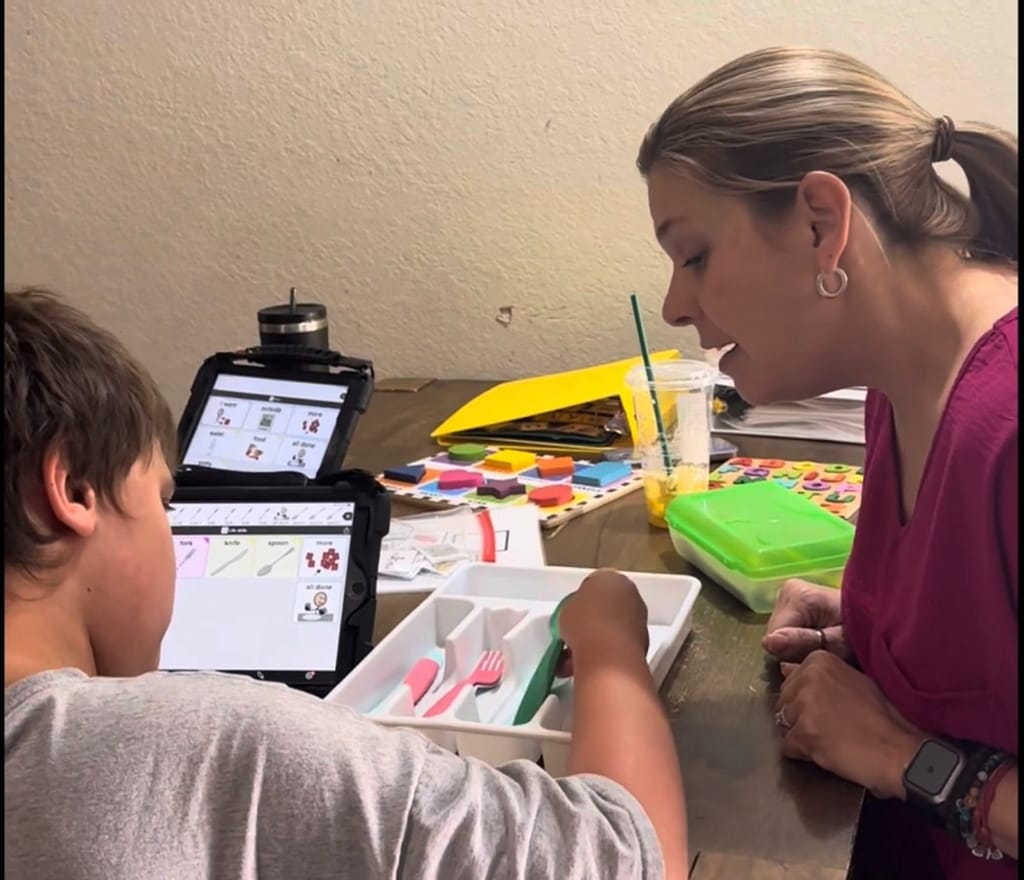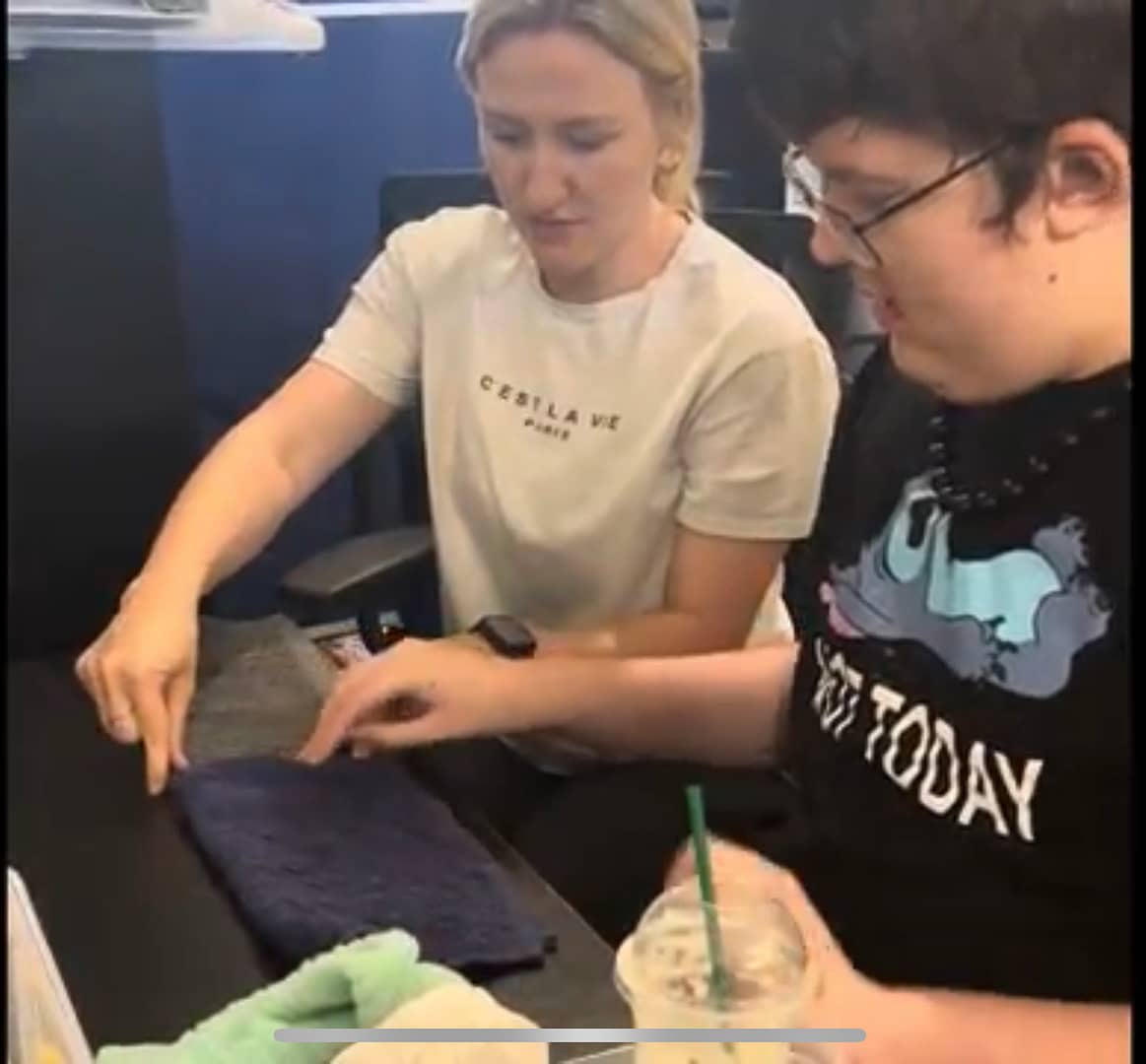When many people look at life skills tasks, they see chores, but what I see are endless opportunities for growth, cognitive development, independence, and so much more! This week, we are talking about life skills tasks on the blog and the benefits of incorporating these into your child’s daily routine.

So Many Opportunities for Growth
For children, life skills tasks or chores are complicated, at first. They include multi-step processes that set them on a path for problem-solving. These tasks also have practical life implications and academic lessons built in. When a child washes a table, it has a purpose. The child just learned to clean up after themself, but they also to was the table from left to right, up and down, building motor control and vocabulary.
Practical life skill tasks also build concentration and focus. The child completing the task must concentrate on their work and follow directions. Building these skills in a practical way will make it easier for children to build these skills in an academic way. The child will also gain a feeling of pride, and improve motor skills, and hand-eye coordination. These skills transfer to academic skills that are more cognitively demanding like math, reading, science, and language arts.
Folding Washcloths
One of the tasks we practiced this week was folding washcloths. This is a great task because it builds concentration, builds visuospatial ability (ability to understand, reason, and remember the visual and spatial relations among objects or space), following directions, and fine motor skills. A child who can make sense of learning to fold the washcloth in half and half again is working academically on fractions and beginning measurement activities. This will help in mathematics and science.
Setting the Table
Setting the table is a great practical life skill. If you perform this task before meals, it helps with the understanding of time and that meal time is near. It is also an advanced matching skill. The child who can do this task has moved beyond matching identical cards. They are learning to set a place just like the adult models for them. You can also incorporate turn-taking with this skill. I set one place, you set another. Following directions, visuospatial skills, as well as motor skills are also incorporated into this task. Make this task meaningful by doing it every day before dinner.
Matching Socks
This skill takes matching to a practical level. Kids can get bored with matching cards. Have your little helper match socks with the laundry or build your own task box like we did in the video. Matching is a great beginning academic skill. We match numbers, and letters when we begin those foundational skills, and then we move on to matching sounds and quantities. Matching is such an important foundational skill. I made sure all of my elementary students always had a matching IEP goal at their level to set them up for success.
Sorting Silverware
Sorting is another important foundational cognitive skill. Sorting teaches your child to notice things that are the same and different and learn how to put things into categories. Sorting helps to develop early literacy and numeracy skills.
Life skills are so important for all children. All teaching moments with your child are great language-building and social-emotional opportunities in addition to the cognitive and academic gains they will make. Try to incorporate some into your daily routine and watch your child grow.
Be sure to follow us on Facebook and Instagram for posts.
Love & Co. Therapeutic Interventions
referrals@loveandcompanytherapies.com
☎ 1 (941) 557-3881
☎ 1 (941) 264-8641

Leave a Reply